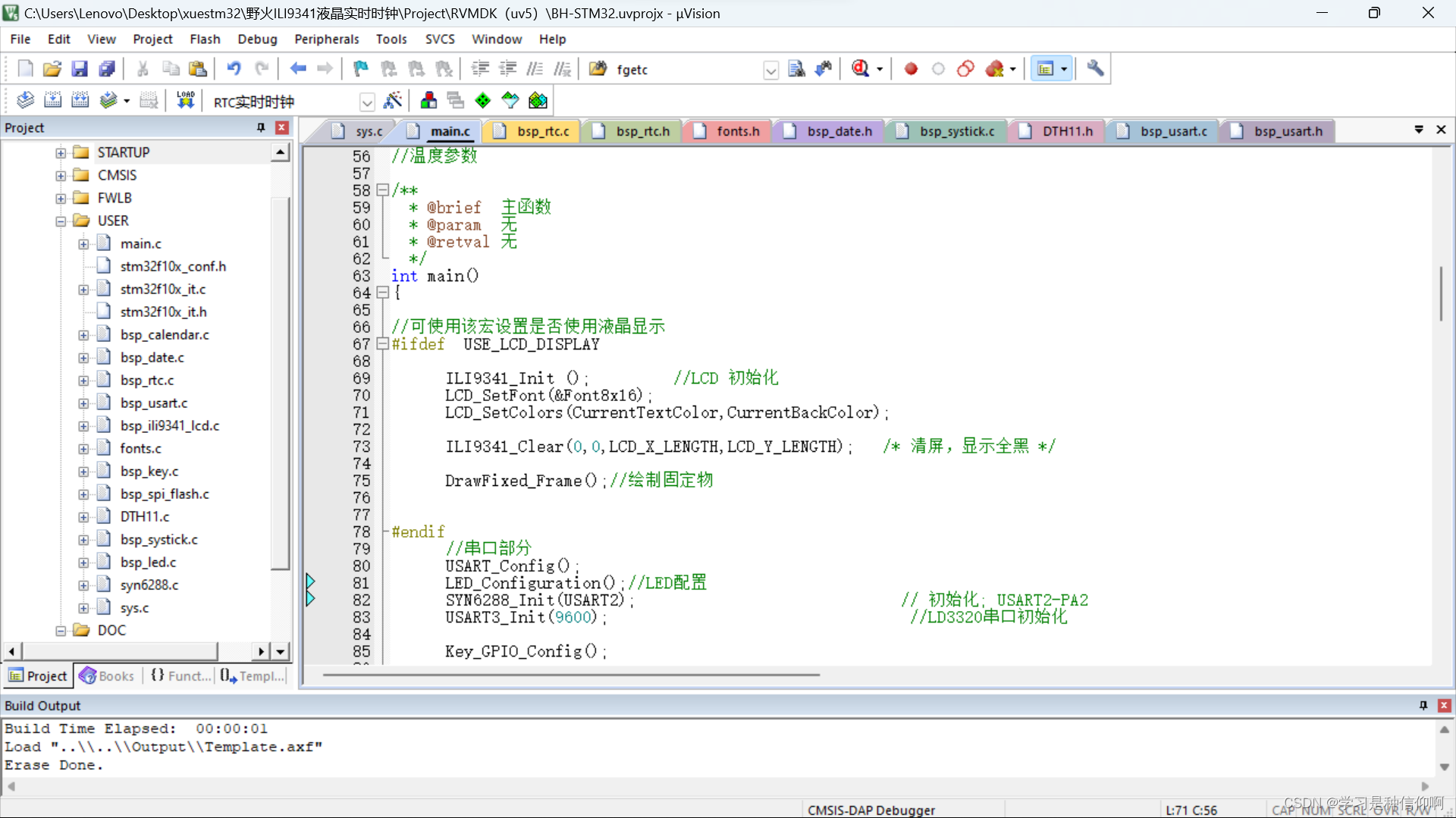TCP CC tracing
#!/usr/bin/python## tcp_cc Trace TCP IPv4 tcp_slow_start and tcp_cong_avoid_ai().#For Linux, uses BCC, eBPF. Embedded C.from __future__ import print_functionfrom bcc import BPFfrom bcc.utils import pr
·
#!/usr/bin/python
#
# tcp_cc Trace TCP IPv4 tcp_slow_start and tcp_cong_avoid_ai().
# For Linux, uses BCC, eBPF. Embedded C.
from __future__ import print_function
from bcc import BPF
from bcc.utils import printb
# define BPF program
bpf_text = """
#include <uapi/linux/ptrace.h>
#include <net/sock.h>
#include <net/inet_connection_sock.h>
#include <bcc/proto.h>
#include <linux/tcp.h>
// define output data structure in C
struct data_t {
u32 pid;
u64 ts;
char comm[TASK_COMM_LEN];
u32 function;
u32 output[9];
};
BPF_PERF_OUTPUT(events);
/* BIC TCP Parameters */
struct bictcp {
u32 cnt; /* increase cwnd by 1 after ACKs */
u32 last_max_cwnd; /* last maximum snd_cwnd */
u32 last_cwnd; /* the last snd_cwnd */
u32 last_time; /* time when updated last_cwnd */
u32 epoch_start; /* beginning of an epoch */
#define ACK_RATIO_SHIFT 4
u32 delayed_ack; /* estimate the ratio of Packets/ACKs << 4 */
};
static inline unsigned int tcp_left_out(const struct tcp_sock *tp)
{
return tp->sacked_out + tp->lost_out;
}
static inline unsigned int tcp_packets_in_flight(const struct tcp_sock *tp)
{
return tp->packets_out - tcp_left_out(tp) + tp->retrans_out;
}
u32 kprobe__tcp_slow_start(struct pt_regs *ctx, struct tcp_sock *tp)
{
struct data_t data = {};
struct bictcp *ca = (void *)tp->inet_conn.icsk_ca_priv;
struct sock *skp = (struct sock *)tp;
u32 in_flight = tcp_packets_in_flight(tp);
u32 saddr = skp->__sk_common.skc_rcv_saddr;
u32 daddr = skp->__sk_common.skc_daddr;
u16 dport = skp->__sk_common.skc_dport;
data.pid = bpf_get_current_pid_tgid();
data.ts = bpf_ktime_get_ns();
bpf_get_current_comm(&data.comm, sizeof(data.comm));
data.function = 1;
data.output[0] = saddr;
data.output[1] = daddr;
data.output[2] = ntohs(dport);
data.output[3] = tp->snd_cwnd;
data.output[4] = tp->snd_ssthresh;
data.output[5] = tp->rcv_wnd;
data.output[6] = in_flight;
data.output[7] = tp->snd_cwnd_cnt;
data.output[8] = ca->cnt;
events.perf_submit(ctx, &data, sizeof(data));
return 0;
};
void kprobe__tcp_cong_avoid_ai(struct pt_regs *ctx, struct tcp_sock *tp)
{
struct data_t data = {};
struct bictcp *ca = (void *)tp->inet_conn.icsk_ca_priv;
struct sock *skp = (struct sock *)tp;
u32 in_flight = tcp_packets_in_flight(tp);
u32 saddr = skp->__sk_common.skc_rcv_saddr;
u32 daddr = skp->__sk_common.skc_daddr;
u16 dport = skp->__sk_common.skc_dport;
data.pid = bpf_get_current_pid_tgid();
data.ts = bpf_ktime_get_ns();
bpf_get_current_comm(&data.comm, sizeof(data.comm));
data.function = 2;
data.output[0] = saddr;
data.output[1] = daddr;
data.output[2] = ntohs(dport);
data.output[3] = tp->snd_cwnd;
data.output[4] = tp->snd_ssthresh;
data.output[5] = tp->rcv_wnd;
data.output[6] = in_flight;
data.output[7] = tp->snd_cwnd_cnt;
data.output[8] = ca->cnt;
events.perf_submit(ctx, &data, sizeof(data));
};
void kprobe__bictcp_state(struct pt_regs *ctx, struct sock *sk, u8 new_state)
{
struct data_t data = {};
struct tcp_sock *tp = tcp_sk(sk);
u32 saddr = sk->__sk_common.skc_rcv_saddr;
u32 daddr = sk->__sk_common.skc_daddr;
u16 dport = sk->__sk_common.skc_dport;
data.pid = bpf_get_current_pid_tgid();
data.ts = bpf_ktime_get_ns();
bpf_get_current_comm(&data.comm, sizeof(data.comm));
data.function = 3;
data.output[0] = saddr;
data.output[1] = daddr;
data.output[2] = ntohs(dport);
data.output[3] = tp->snd_cwnd;
data.output[4] = tp->snd_ssthresh;
data.output[5] = tp->rcv_wnd;
data.output[6] = new_state;
data.output[7] = 0;
data.output[8] = 0;
events.perf_submit(ctx, &data, sizeof(data));
};
#if 0
void kprobe__bictcp_cong_avoid(struct pt_regs *ctx, struct sock *sk, u32 ack, u32 acked)
{
struct data_t data = {};
struct tcp_sock *tp = tcp_sk(sk);
u16 dport = sk->__sk_common.skc_dport;
if (ntohs(dport) == 5201) {
u32 saddr = sk->__sk_common.skc_rcv_saddr;
u32 daddr = sk->__sk_common.skc_daddr;
u8 in_slow_start = tp->snd_cwnd < tp->snd_ssthresh;
u8 ss_cwnd_limit = tp->snd_cwnd < 2 * tp->max_packets_out;
u8 is_cwnd_limited = *(u8 *)((u64)&tp->tlp_high_seq - 1);
u8 ca_state = *(u8 *)((u64)&tp->inet_conn.icsk_retransmits - 1);
data.pid = bpf_get_current_pid_tgid();
data.ts = bpf_ktime_get_ns();
bpf_get_current_comm(&data.comm, sizeof(data.comm));
data.function = 4;
data.output[0] = saddr;
data.output[1] = daddr;
data.output[2] = ntohs(dport);
data.output[3] = tp->snd_cwnd;
data.output[4] = tp->snd_ssthresh;
data.output[5] = ca_state;
data.output[6] = in_slow_start;
data.output[7] = ss_cwnd_limit;
data.output[8] = is_cwnd_limited;
events.perf_submit(ctx, &data, sizeof(data));
}
}
#endif
"""
# initialize BPF
b = BPF(text=bpf_text)
# header
print("tcp cc trace")
print("%-16s %-16s %-16s [%-4s] -> %-16s %-16s %-8s %-8s %-8s %-8s %-8s %-8s %-8s" % (
"time_s", "comm", "pid", "function_id", "output1", "output2", "output3",
"output4", "output5", "output6", "output7", "output8", "output9"))
def inet_ntoa(addr):
dq = b''
for i in range(0, 4):
dq = dq + str(addr & 0xff).encode()
if (i != 3):
dq = dq + b'.'
addr = addr >> 8
return dq
# process event
start = 0
def print_event(cpu, data, size):
global start
event = b["events"].event(data)
if start == 0:
start = event.ts
time_s = (float(event.ts - start)) / 1000000000
print("%-18.9f %-16s %-16s [%-4s] -> %-16s %-16s %-8s %-8s %-8s %-8s %-8s %-8s %-8s" % (
time_s, event.comm, event.pid,
event.function,
inet_ntoa(event.output[0]), inet_ntoa(event.output[1]), event.output[2],
event.output[3], event.output[4], event.output[5],
event.output[6], event.output[7], event.output[8]))
# loop with callback to print_event
b["events"].open_perf_buffer(print_event)
while 1:
b.perf_buffer_poll()#!/usr/bin/python3
from __future__ import print_function
from bcc import BPF
from bcc.utils import printb
# define BPF program
bpf_text = """
#include <uapi/linux/ptrace.h>
#include <net/sock.h>
#include <bcc/proto.h>
#include <net/inet_connection_sock.h>
#include <bcc/proto.h>
#include <linux/ip.h>
struct my_skb_shared_info {
__u8 __unused;
__u8 meta_len;
__u8 nr_frags;
__u8 tx_flags;
unsigned short gso_size;
unsigned short gso_segs;
struct sk_buff *frag_list;
struct skb_shared_hwtstamps hwtstamps;
unsigned int gso_type;
};
static inline struct iphdr *skb_ip_hdr(const struct sk_buff *skb)
{
return (struct iphdr *)(skb->head + skb->network_header);
}
static inline struct inet_sock *my_inet_sk(const struct sock *sk)
{
return (struct inet_sock *)sk;
}
int kprobe__ip_local_out(struct pt_regs *ctx, struct net *net, struct sock *sk, struct sk_buff *skb)
{
struct my_skb_shared_info *shinfo = (struct my_skb_shared_info *)(skb->head + skb->end);
u16 dport = sk->__sk_common.skc_dport;
struct iphdr *iph = skb_ip_hdr(skb);
struct inet_sock *my_sk = my_inet_sk(sk);
u16 ip_id = iph->id;
if (ntohs(dport) == 5201) {
bpf_trace_printk("gso_trace %d %d %d", my_sk->inet_id , ntohs(ip_id), skb->len);
bpf_trace_printk("gso_trace %d %d %x", shinfo->gso_size, shinfo->gso_segs, shinfo->gso_type);
}
return 0;
};
"""
# initialize BPF
b = BPF(text=bpf_text)
# header
print("%-6s %-12s %-16s %-16s %-4s" % ("PID", "COMM", "SADDR", "DADDR","DPORT"))
def inet_ntoa(addr):
dq = b''
for i in range(0, 4):
dq = dq + str(addr & 0xff).encode()
if (i != 3):
dq = dq + b'.'
addr = addr >> 8
return dq
# filter and format output
while 1:
# Read messages from kernel pipe
try:
(task, pid, cpu, flags, ts, msg) = b.trace_fields()
(_tag, output1, output2, output3) = msg.split(b" ")
except ValueError:
# Ignore messages from other tracers
continue
except KeyboardInterrupt:
exit()
# Ignore messages from other tracers
if _tag.decode() != "gso_trace":
continue
printb(b"%-6d %-12.12s %-16s %-16s %-16s" % (pid, task, output1, output2, output3))
更多推荐
 已为社区贡献1条内容
已为社区贡献1条内容








所有评论(0)